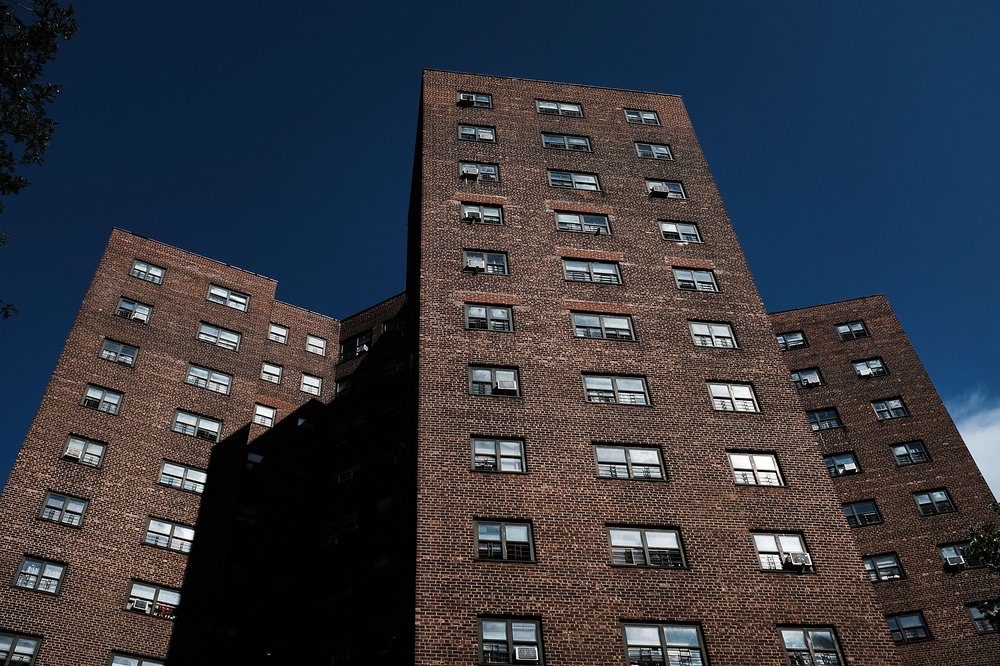NYC reps blame federal ‘chaos’ after NYC housing officials delay rental assistance payments
March 3, 2025, 5:44 p.m.
U.S. Reps. Ritchie Torres and Nydia Velázquez said uncertainty at the federal level is forcing New York City to hold off on Section 8 payments.

Two New York City congress members are blaming “chaos” at the federal level for slowing key rental assistance payments to landlords of roughly 100,000 low-income tenants in the five boroughs.
U.S. Reps. Ritchie Torres of the Bronx and Nydia Velázquez of Brooklyn, both Democrats, said staff cuts at the Department of Housing and Urban Development and a threatened freeze on federal funding in late January have compelled officials from the city’s housing authority to hold off on scheduling payments to landlords through the federal Section 8 program.
“The threat of funding freezes, separate and apart from the reality of them, creates massive uncertainty that destabilizes critical programs like Section 8,” Torres told Gothamist in an interview. ”Uncertainty carries its own costs.”
NYCHA runs most of the Section 8 program in New York City and distributes about $2 billion a year to landlords on behalf of New Yorkers. The housing authority typically deposits money in landlords’ accounts on the first business day of the month. But for the second month in a row, NYCHA delayed paying landlords by at least a day.
A new notice on the NYCHA website informs landlords that the authority will now only issue payments “within one business day” of the agency physically receiving the money from the federal government. The agency previously scheduled payments before actually receiving the cash.
“Out of an abundance of caution and until NYCHA receives further guidance from HUD, funding must be received before payment to Section 8 landlords can be made,” NYCHA spokesperson Michal Horgan said in a written statement.
NYCHA received the money from the federal government on March 1, according to the agency.
Officials from the Department of Housing and Urban Development did not answer questions about the delay or its communications with NYCHA. The agency provided a form response saying it was reviewing the inquiry.
After ordering a federal funding freeze in late January, the White House issued a fact sheet explaining rental assistance would not be affected. However, internal guidance from the federal Office of Management and Budget obtained by the New York Times showed the Section 8 program was included among federal initiatives subject to review.
Tenants qualify for Section 8 based on their income and typically pay no more than 30% of their earnings toward rent. The federal program covers the remainder, up to a certain threshold depending on location and family size.
Torres said the delays threaten to undermine confidence in the Section 8 program as “a reliable, dependable, predictable funding stream” that could lead to fewer landlords willing to accept tenants who use the subsidy.
Velázquez also pinned the delayed payments on “reckless and careless mismanagement” that she said “creates chaos for our city agencies.”
Both members of Congress serve on the Financial Services Committee.
Landlords told Gothamist they were dismayed by the delays.
“The biggest selling point of Section 8 is that the money’s guaranteed,” said John Tsevdos, a Brooklyn landlord with a tenant who uses a Section 8 voucher.
The “perception” of a disruption would have a chilling effect, he said.
Jay Martin, the senior vice president at the landlord trade group New York Apartment Association, said multiple property owners and managers contacted him to report the delayed payments Monday morning. He said many landlords make their mortgage payments through automatic withdrawals and depend on rent money being in their accounts at the time.
“It’s concerning from a property owners’ perspective because there’s no ability to tell the bank, ‘I haven't been paid yet, so don’t take my money out,'” Martin said. “You expect an infusion of money to come at a specific time.”
He said he believes NYCHA’s new approach shows the agency doesn’t trust the Trump administration.
“There’s some legitimate concern the feds aren’t going to make their payments,” Martin said. “Collectively, both layers of government need to work together soon. It’s just not helpful to the overall mission of helping people get into housing.”
Uncertainty over federal cuts to NYC housing forges unlikely allies NY tries to contain rising threat to affordable housing: Skyrocketing insurance costs NYC’s housing goals face uncertainty amid upheaval in Mayor Adams' administration